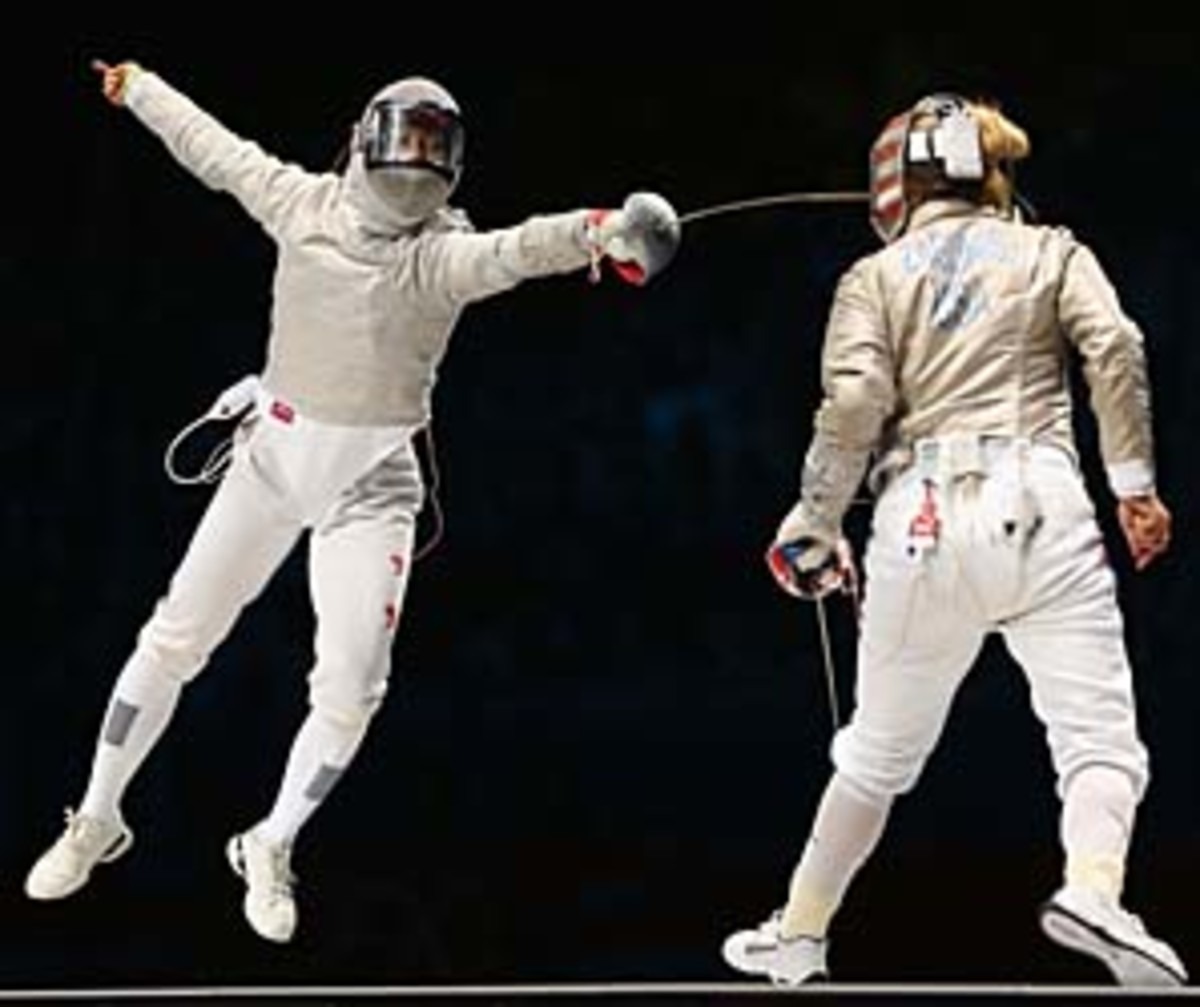Medals quickly elude U.S. fencers Mariel Zagunis and Seth Kelsey
LONDON -- At the Games of the XXX Olympiad, the sabre is the event that is, to paraphrase English philosopher Thomas Hobbes, nasty, British and short. The hits just keep on comin'. Mariel Zagunis, the American flag bearer here, was on the piste for just 89 seconds of actual fencing time in her semifinal bout against Kim Jiyeon, the two recording a combined 28 touches. That is one touch for every three or so seconds. The earth rotates quickly on its axis in sabre. Sometimes too fast.
Zagunis, a two-time Olympic champion, was the 13-8 favorite to win again and she held a 12-5 lead against Kim, three touches from a berth in the gold medal bout. The sabre favors aggression, and Zagunis is nothing if not forward-moving on the piste and forward-thinking in her ability to conceptualize her sport. But with the virtual finish line in sight, her brain went what the British might call "walkabout."
Later, after a desultory loss in the bronze medal bout, Zagunis explained her London Bridge-sized collapse against Kim as that most human of frailties: a lapse of concentration. When asked what she had been thinking, she replied, "I wish I could tell you what I was thinking, but obviously I wasn't thinking."
Zagunis's seemingly insurmountable lead had vanished at warp speed as 12-5 became 12-10 before she scored another touch. That would be her last. Kim won 10 of the final 11 touches. Zagunis kept storming down the pitch at the deft South Korean, who would evade the attack and counter. At that point, Zagunis, rushing to finish the match, looked like she had run out of ideas. Good ones, anyway.
In the mixed zone, Zagunis essentially said she would be the last person to take anything away from the eventual gold medalist. In fact, she was the last person to take something away from Kim. Although she conceded that the South Korean was talented, the 27-year-old Zagunis said that when she loses, it invariably is not because she has been out-fenced but because she has beaten herself. The bravado was the sort of thing many sports fans like to hear -- "swagger" has become an admirable trait -- but it rang hollow coming from the top-seed in the tournament. Zagunis said she was "in disbelief" in the aftermath of the two losses, which sounds more pleasing to the ear than, say, "in denial."
There was another fourth-place medal for American fencing Wednesday, one that was greeted with greater equanimity even though Seth Kelsey lost both his epee semifinal and third-place matches in extra time. "Got to take your chances," he said with a small smile. "You win some, you lose some."
The epee suits Kelsey because, unlike the saber, it is a more contemplative weapon. The 6'-4" Kelsey, who has simian arms that help him score distant touches, is uncommonly deliberate on the piste, delighted by low-scoring matches and willing to take his chances on one touch in extra time. In another sporting context, it might be said that he is trying to take the air out of his epee.
Kelsey practically invites passivity warnings, which advance the bout to the ensuing period. The tactic failed against peripatetic Venezuelan lefthander Ruben Limardo Gascon in the semifinal and again in a more engaging bronze-medal match, when Kelsey was barely scraped on the right foot by South Korea's Jinsung Jung. (In epee, touches are permitted anywhere on the body.)
Maybe it was simply a case of modest expectations -- Kelsey never had won a bout in two previous Games -- or his victory over top-seeded Nikolai Novosjolov of Estonia in the second round, but he managed a matter-of-fact smile when his long day was done. Earlier when asked how he would spend the three hours between his quarterfinal and semifinal match, the 17th seed said, "No idea, I've never been in this position before."






